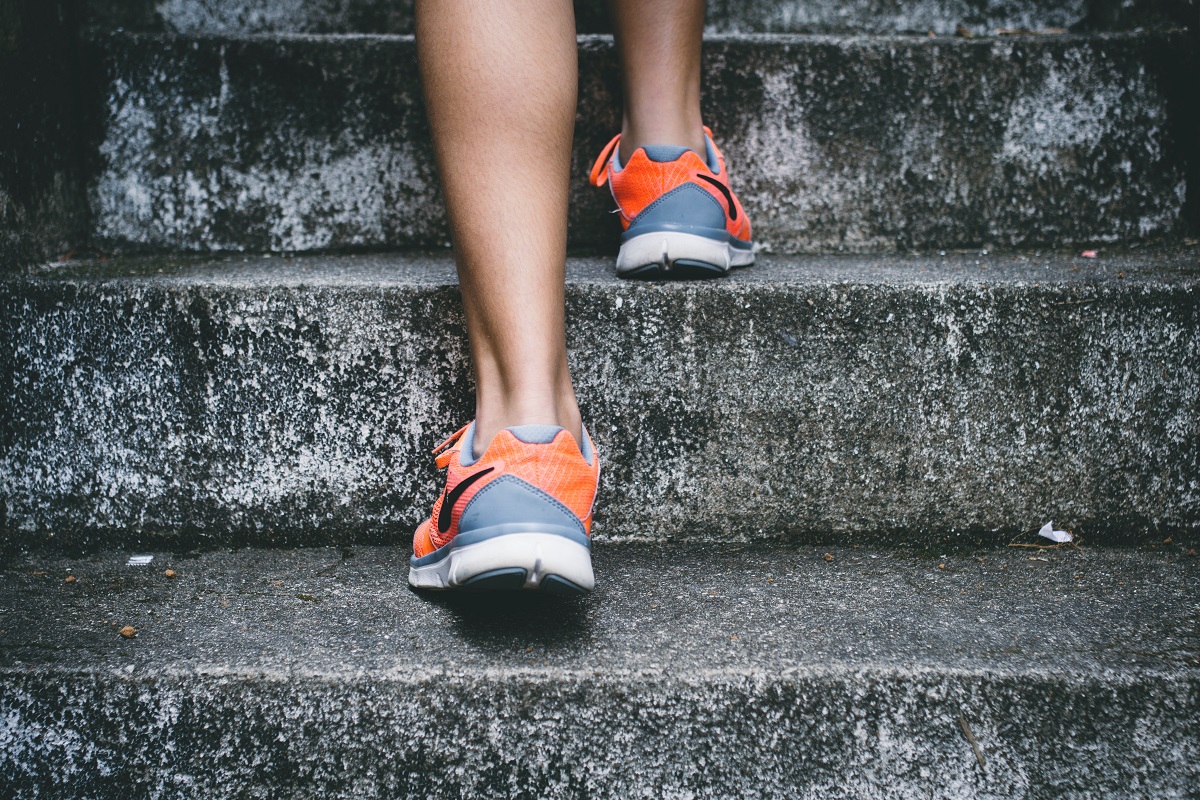THE DAILY DOSE
How Anxiety Can Influence Fitness Levels

Your lifestyle plays a significant role in your anxiety levels. Nutrition and daily stress can factor into how your specific case of anxiety progresses or declines. The idea that lifestyle greatly impacts mental health is nothing new. That said, the importance of making lifestyle changes to benefit the wellness of your mind has gained traction in recent years. New research surrounding anxiety disorders and lifestyle factors has all shared one finding: if you don’t take care of your body, your mind will suffer.
However, people with mental health disorders such as anxiety can also suffer from a reduction in physical health as a result of their condition. Stress affects many biological systems in the body – cardiovascular, respiratory, immune, and digestive – so it’s only fair to assume that high stress and anxiety can also impact fitness levels. But how does anxiety affect your overall level of fitness and physical wellbeing? Read on to learn how anxiety can influence fitness levels.
Anxiety and fitness
Anxiety and fitness are connected in a big way. That is because stress, when severe enough, impacts a person’s fitness for various reasons. The first has a lot to do with just feeling up to working out. Studies have shown that people with anxiety are far more sedentary than those without the disorder. One study looked at the reasons behind this fact and found that it could have much to do with anxiety’s physical symptoms.
People with anxiety may experience various ailments, including:
- Headaches
- Dizziness
- Stomach aches
- Racing heart
- Shallow breathing
- Muscle tension that can lead to pain
- Fatigue
- Feelings of weakness
- Tingling in the hands and feet
- Chest pain or pressure

All of these physical symptoms can be mild to severe. That said, even people who experience the mildest of symptoms associated with anxiety may not feel inclined to work out. Suppose you are supposed to go for a run, but you wake up with a stomach ache and feel dizzy. You’re not going to feel comfortable lacing up your shoes and pushing your body when you feel physically ill. The study did, however, find that the more severe a person’s symptoms are, the more likely they are to skip their next workout session.
People with anxiety also suffer from mental symptoms that can make exercise challenging to accomplish as well. Brain fog from anxiety fatigue can make it difficult to get out of bed, let alone head to the gym. A lack of motivation can also play a role in the absence of physical exercise in people with anxiety.
Anxiety and bodyweight
Another aspect of fitness that ties into anxiety is body weight. People with anxiety have elevated levels of stress hormones. One such hormone, cortisol, has been linked to an increase in weight. The hormone signals the body to hold onto excess weight in case it needs it in a life-or-death situation. The abdomen and stomach area are where most of the fat accumulates in highly stressed people. Research shows that losing fat in the belly is the hardest to do when trying to shed pounds.
When people with anxiety carry extra weight, it can make it physically more difficult to engage in various types of exercise. When combining being overweight, unmotivated, and physically ill, it’s no wonder getting out to exercise with chronic anxiety is difficult.
Can exercise improve anxiety?
The connection between anxiety and fitness is something of a catch-22. As mentioned above, getting to the gym or working out is increasingly difficult for people with anxiety. But on the opposite side, exercising can lead to decreased anxiety symptoms.
There are many reasons why exercising can help make anxiety a more manageable condition. They include:
Distraction
Working out requires focus. Whether you run, lift weights, or do yoga, you must remain focused on your body. This intense concentration is a distraction against anxious and stressful thoughts. When you’re too busy counting reps, you can’t be thinking about the things that stress you out.
Combat for physical symptoms
Some physical symptoms of anxiety, such as muscle tension and headaches, can be improved through regular exercise. While your muscles may be sore after a workout, they are less tense.

Brain chemistry
Symptoms of anxiety are driven by the body’s release of stress hormones. If you exercise, you trigger the brain to release different types of chemicals that can combat those feelings. For example, the brain releases serotonin when you increase your heart rate through exercise. Serotonin is associated with feelings of mental wellness and can regulate anxiety.
Brain function
If you have anxiety, your brain perceives non-threats as dangers you need to get away from. This malfunction can be fought against with exercise because movement can activate areas of the brain that control how you process threats to your safety.
What type of exercise is best for anxiety?
While any physical movement helps battle anxiety, high-intensity interval training is one of the best. Research shows that people who engage in activities that increase their heart rate show a more notable improvement in anxiety symptoms.
Overall, though, the best exercise for you is the one you’ll continue doing. It doesn’t matter what type you choose; if you want to increase your fitness levels while helping your anxiety, pick one and stick with it. You’ll be grateful you did.
Featured image by Bruno Nascimento on Unsplash